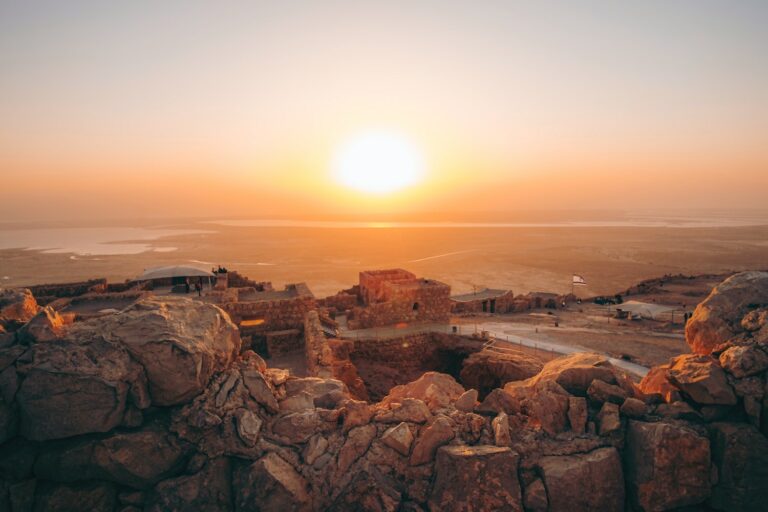Adapted from the writing of Dr. Jürgen Bühler

The Biblical Feast of Shavuot, The Feast of Weeks, or Pentecost, is one of the three times in the year when the people of Israel were required by God to come up to Jerusalem for a holy assembly. They were to appear in Zion to celebrate Passover, Pentecost and Tabernacles, the three great pilgrimage feasts of the Bible. Among other things, all three feasts were celebrations of thanksgiving for the different seasons of harvest in Israel’s calendar.
Pentecost Harvest
During Passover, when the very first fruits of barley were presented and full harvest was weeks away, it was a statement of faith to place all produce of that year under God’s blessing.
The second harvest feast for Israel was Pentecost, which took place exactly fifty days after that, “day after the Shabbat”, when the firstfruits were offered to the LORD (Leviticus 23:15f). The spring crop of wheat had come to ripen and was now dedicated to God. “And you shall observe the Feast of Weeks, of the firstfruits of wheat harvest…” (Exodus 34:22). It was a feast of thanksgiving to celebrate the faithfulness of God. But other harvests would still follow, like the olive, wine and figs.
Tablets of Stone – Hearts of Flesh
According to Jewish tradition, the people of Israel arrived at Mount Sinai on Pentecost. Exodus 19 records that God came down on the mountain with fire, thick clouds and loud thunderings. On that day God gave the Ten Commandments, on “tablets of stone, written with the finger of God” (Exodus 31:18).
Paul refers to that moment in his second letter to the church in Corinth. The New Testament believer, Paul states, is “an epistle of Christ, “…written not with ink, but by the Spirit of the living God, not on tablets of stone, but on tablets of flesh, that is, of the heart” (2 Corinthians 3:3). For Paul, the ministry of the New Covenant was taking place on a whole new level compared to the covenant of Mount Sinai (see Jeremiah 31:31ff).
In Acts 2, it says “when the day of Pentecost had fully come”, the Spirit of God fell on the early Church like a rushing mighty wind and with tongues of fire on each of the believers. The disciples entered into a new season of ministry. It was a ministry of Spirit-empowered individuals who were personally transformed by the indwelling presence of God. It was a powerful and dynamic group of people who impacted the entire world with the Gospel. It was also a first celebration of ingathering, as the first harvest of souls was gathered into the storehouse of God. “[And] that day about three thousand souls were added to them”, says Acts 2:41. Millions more would follow in the weeks, years, decades and centuries to come. The first harvest was an exclusively Jewish harvest, as all those initial believers in Jesus were Jews. Over time, God would show those original apostles that the fields of harvest were ripening in other parts of the world. It would eventually grow into an innumerable company of people from every nation, tribe and tongue.
Two Leavened Loaves
According to the Mosaic law, a special sacrifice was to be brought before God at Pentecost. “You shall bring from your dwellings two wave loaves of two-tenths of an ephah. They shall be of fine flour; they shall be baked with leaven. They are the firstfruits to the LORD.” (Leviticus 23:17)
Early Church leaders saw in it an interesting symbolism. Bede the Venerable (673–735) writes: “Two loaves of bread made from the first fruits of the new harvest were rightly ordered to be offered, for the church gathers those it can consecrate to its Redeemer as a new family from both peoples, the Jews and the Gentiles.”
But unlike other sacrifices, it was leavened – symbolising the imperfection of the church. It is true that church history is a continuous line of great triumphs but also of sobering failures. The great failures in church history or even in the church today should never cause us to stumble but rather to make us draw closer to God, recognising our need for His Spirit to continuously change our hearts.
Conclusion
Shavuot was a celebration of the beginning of the annual harvest season. It was the starting point of the church and the beginning of countless harvest cycles which would sweep millions around the globe into the kingdom of God. But it is also the beginning of a church which remains in desperate need of the Holy Spirit, otherwise the leaven of human nature will overcome and spoil the harvest. The signs of the times suggest that we are in the midst of possibly the last great season of harvest. Israel is being restored while unprecedented numbers of people are entering the Kingdom of God all around the world. The question is: Are we labourers in God’s harvest fields or are we mere bystanders and observers of the harvest? Let us join ranks because the “fields are ripe for harvest.”



